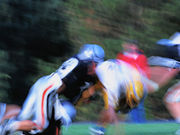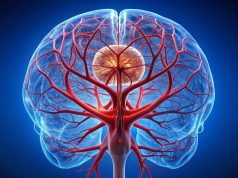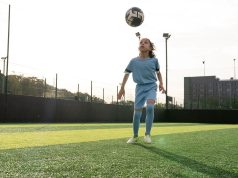Study of college players raises concerns about repetitive non-concussive impacts
FRIDAY, May 13, 2016 (HealthDay News) — Repeated blows to the head can cause near point of convergence (NPC), even if the individual impacts aren’t strong enough to cause a full-fledged concussion, according to research published online May 12 in JAMA Ophthalmology.
Keisuke Kawata, a Ph.D. student at Temple University in Philadelphia, and colleagues recruited 29 Temple University football players. They fitted them with a “smart” mouthguard that tracked the number of head impacts received during play and the magnitude of head acceleration during those impacts. The researchers then followed the players through five preseason practices, sorting them into two groups — one that received higher-impact blows to the head during play, and those who received lower-impact blows.
These subconcussive head impacts didn’t cause any symptoms noticeable to players, regardless of how often and how hard they were hit, researchers found. However, vision tests found the higher-impact group suffered from compromised NPC. Those vision problems remained three weeks later when tested at the end of training camp. But after three weeks of post-season rest, their eyes returned to normal, according to follow-up vision exams.
“Although asymptomatic, these data suggest that repetitive subconcussive head impacts were associated with changes in NPC,” the authors write. “The increase in NPC highlights the vulnerability and slow recovery of the ocular-motor system following subconcussive head impacts. Changes in NPC may become a useful clinical tool in deciphering brain injury severity.”
Copyright © 2016 HealthDay. All rights reserved.








